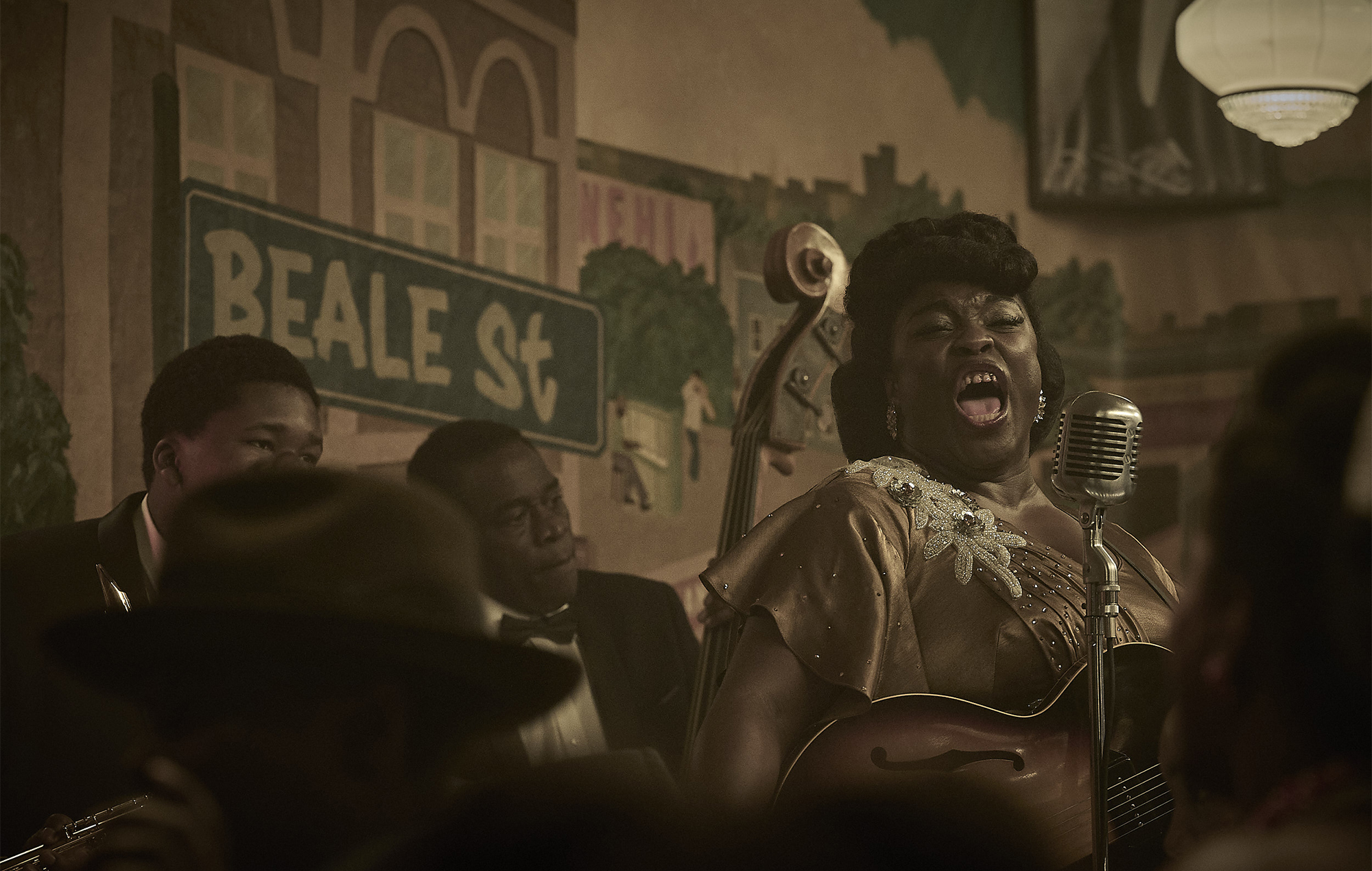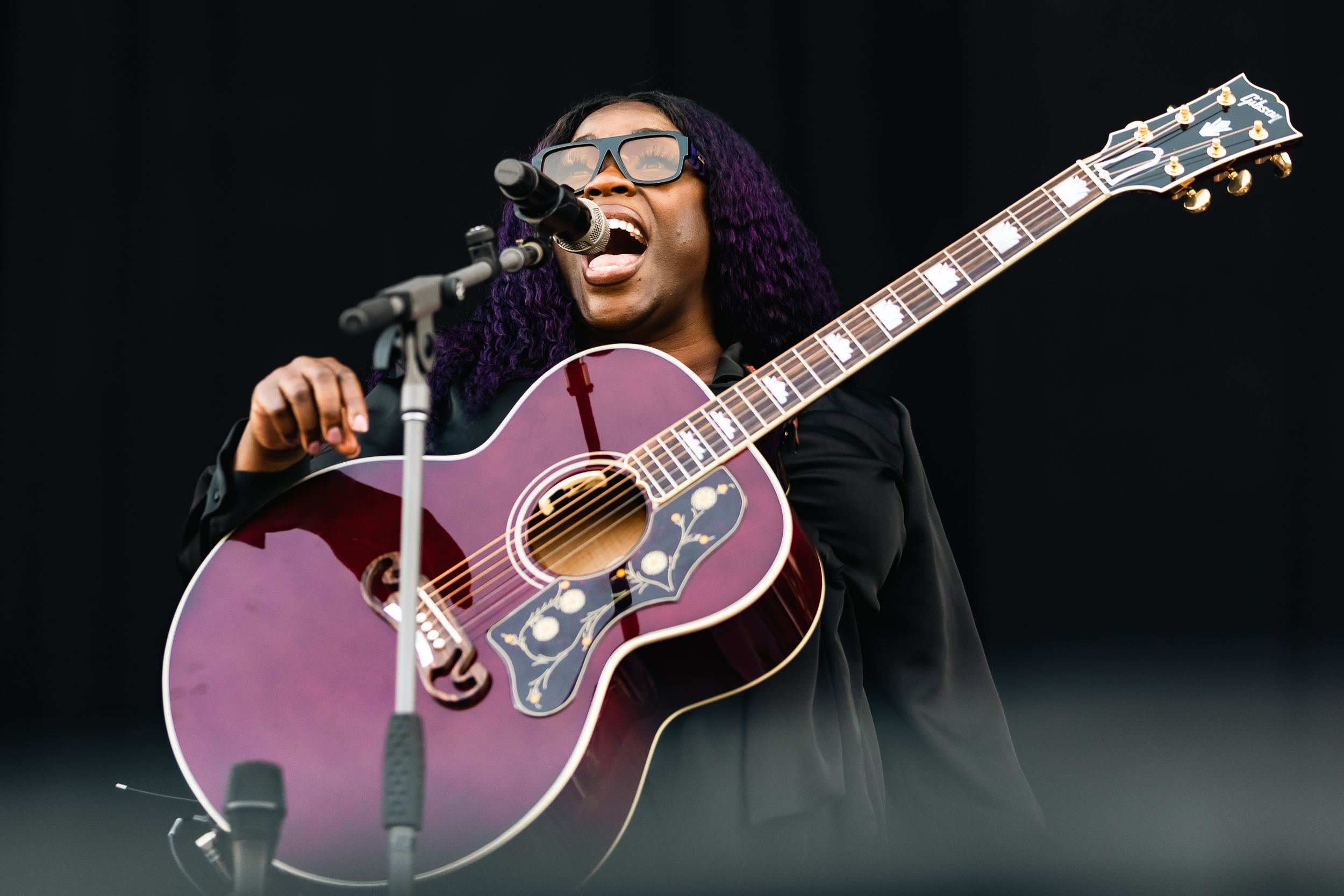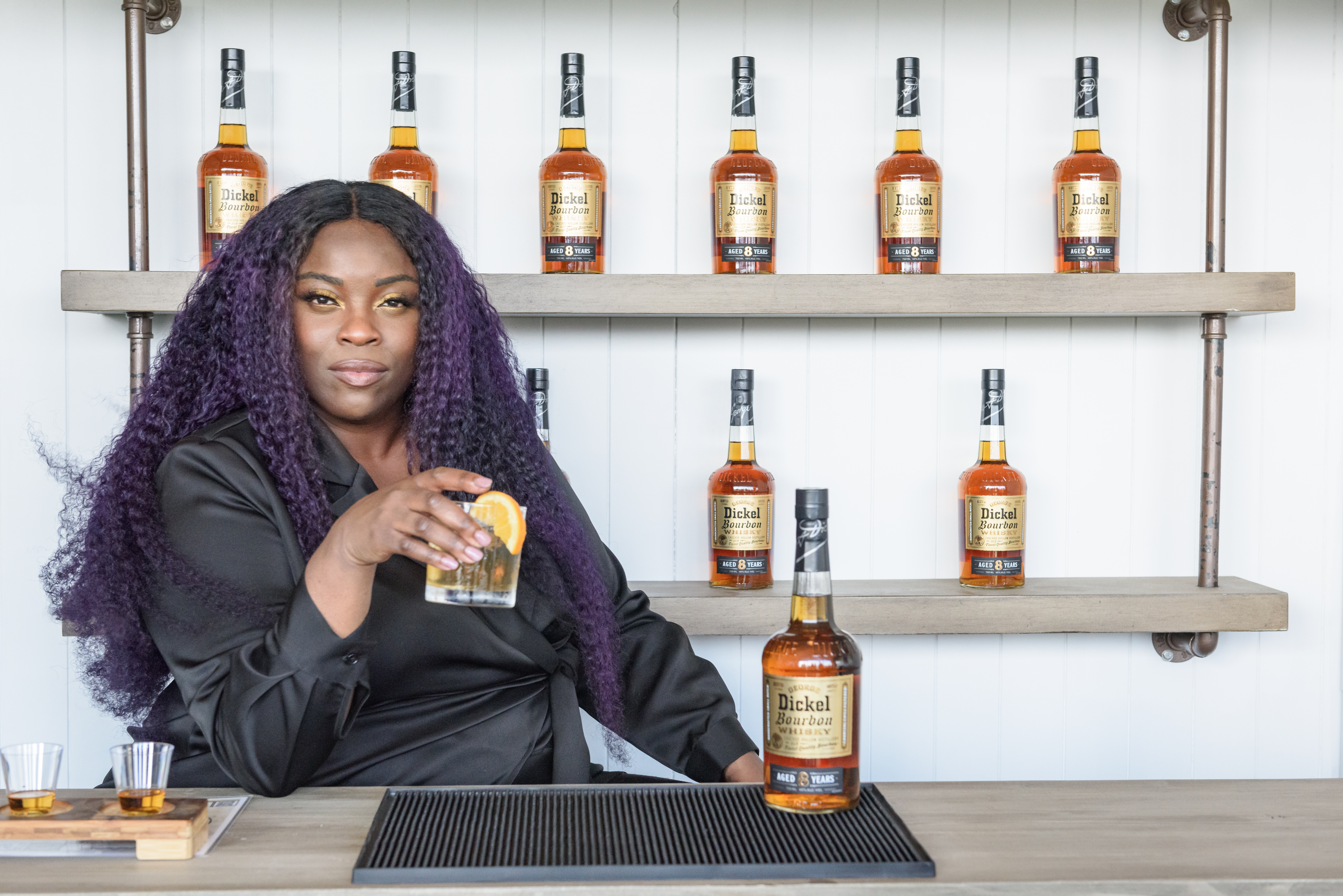
Memphis’ Beale Street, Tennessee whiskey, and Bristol, England, aren’t often discussed in the same breath. But that’s what happened when I sat down with British Soul artist Yola to sip on a Tennessee whiskey sour and talk about the blues, Elvis, and women blazing their own paths in whiskey and music.
When I got the call to talk to Yola, I was pretty excited. I’ve been a fan for a couple of years thanks to her great Tiny Desk concert. I also have a British wife and children and travel there for work often, so I try and keep up with the culture in the U.K.
Anyway, the opportunity didn’t come across my inbox because of the music. Yola has teamed up with someone I’m a pretty big fan of in the whiskey sphere, Nicole Austin. Around the time we met, Yola was performing at this year’s Bourbon & Beyond Festival and hanging out with Austin, the General Manager and Distiller of Cascade Hollow Distilling Co. a.k.a. George Dickel. After watching the artist kill it — if only for a few moments — in Elvis playing Sister Rosetta Tharpe and on stage at B&B, I had a million questions for her about Memphis, Bristol, and Tennessee whiskey.
Our chat touched on representation and erasure, finding your place in the world, and working with people who don’t follow a standard path in music or whiskey. Let’s dive in!
Also Read: The Top 5 UPROXX Bourbon Posts Of The Last Six Months
- We Blind Tasted A Whole Bunch Of $30-60 Bourbons To See If Any Could Beat Weller
- We Put A Whole Bunch Of Bourbons To A Giant Blind Test And Discovered Some Absolute Gems
- We Blind Tasted Classic Bourbons And Were Shocked By The Winner
- The Best-Known Basic Bottles Of Bourbon, Blind Tasted And Ranked
- All The Double Gold-Winning Straight Bourbons From This Year’s San Francisco World Spirits Competition
Before we get to the whiskey, can you talk a little bit about how the music of Bristol connected you to becoming a musical artist?
Well, I think I was growing up with a lot of record collectors. And there’s like “a music” in Bristol. It’s known for trip-hop. Its roots in music are extremely varied though. Everyone had extremely wildly eclectic tastes in music. If anything, the mark of you being Bristonian was that you were super passionate about six or seven completely polar genres. When I was growing up in the 90s the radio didn’t care about genre. It was like you might have Ginuwine next to Bjork. There’s no way that they’re going to undo this seesaw of what’s popular. That was the environment that I grew up in. You just got this really detailed smorgasbord of what’s happening in the world of music.
Let’s talk a little about your portrayal of Sister Rosetta Tharpe in Elvis. Where did you find the connective tissue between Bristol and Memphis?
Because of this whole environment of music, I was exposed to her in my mid-teens. I was drawn to her because I was listening to a song called That’s All. It came out in 1938, and she referenced the phrase “rock and roll.” And I was like, “wait a minute, everyone says rock and roll was invented in the ’50s?: But she coined the term and she invented it. I’m like, “wait a minute!”
So she grows up in the church and then combines this church tempo with blues playing. Because you all know that blues playing is all slow and mournful, but no, she rocks it. We’ve got the beat, we’ve got the style of guitar playing. What’s left? Then we’ve got her wailing and then we’ve got heavy distortion. There were other people using distortion, not as heavy as she was. And I’m like, that’s it, there isn’t anything left in the invention of the genre. That’s literally it.
And then she coins the term a decade and a bit before anyone else even knows to refer to it in any way. And so when I was getting on point, the fact that she was not just an inventor and an innovator, but a genius to just come up with it all. I was like, how can I not be drawn to this woman? How can I not play this woman? And how can I not do justice to this grossly untold narrative? We hear narratives from all sorts of other people every single time, but because she was … that dark skin and plus-size as a woman … That’s how her narrative regarding her genius is constantly subverted and ignored.

There should be 20 biopics. There should be five documentaries. There should be all the box sets with remasters. I feel you.
You understand the concept of erasure. And you’re like, ‘yeah, erasure happens.’ And so it was massively important to me to do this role right and to make sure — that even though I grew up with her — to make sure that I had as much information as possible. You know the shouts, there’s a shout book, just endless online references. Luckily Baz [Luhrmann] is obsessed with research.
Sometimes he’ll do the research just because he’s so excited about the research and he doesn’t even then make the movie.
He’s a guy who loves homework.
He really, really does. And so I get exposed to that as well which is a blessing.
Did you feel a deeper connection between Bristol and Beale Street when you went there?
Well, weirdly enough, yes. But the funny thing is not necessarily. It feels like Beale Street has this history that is still something that feels like a slightly ambiguous story and overshadowed maybe just by the narrative of Elvis — even though we know we have movies about Beale Street to a degree.
And similarly, Bristol’s narrative has been reductive as well as though trip-hop happened 20-something years ago, and then it fell off the face of the map and nothing ever happened again. I think sometimes when there are narratives that are really actually profoundly interesting, rich, and varied but people don’t always want the interesting and varied story. They want the easy and dumb tales. And so they’ll look for just the nearest white guy and go, “You Buddy!” And that’s pretty much it. Or they’ll look for at least the biggest success story. And then they’ll just focus on that and then try and replicate that over and over and over again and only celebrate and speak on people that extol the virtues of exactly that paradigm.
And so people won’t hear stories like about Sister Rosetta Tharpe discovering Little Richard when he was 14 in Macon, Georgia, you know? At soundcheck, he’s just singing. She’s like, who’s this kid? And he’s a young black kid struggling with his sexuality. It’s the 1950s and you’re a gay black person and you need a place to be safe, to become the full Little Richard that we all know and love. Who provides that environment? A queer black woman or some buttoned-up suit?
So Sister Rosetta Tharpe has all of these performances on Beale Street at Club Handy and that’s where she showcased these people, her people. It all relates back to Memphis and just the narrative, the rich history there. That’s kind of what I’m passionate about.

Let’s talk about whiskey for a moment since you’ve partnered with a female-led brand, George Dickel. Nicole Austin is someone who is actually changing the industry massively. She’s releasing whiskeys that push the boundaries of what the product can be. She’s brash and bold at every turn in a very white and “buttoned-up shirt” world. Did you feel a connection to Dickel and Nicole because of that brashness?
Almost exactly. But philosophically, I’m like, I’ve been always trying to drive my own path and I’m always trying to find the connective tissue between genres. I’m experimental and, similarly, Nicole Austin is experimental at George Dickel, trying to find connective tissue between types of whiskeys.
It’s trying to find synergy between a lot of different palates. I’m not all the way down with the dusty and smoky end of Islay whisky. I like very much existing in the middle of a number of genres, like the blues and soul and whatever else is exciting me. I like things being eminently mixable. I love that philosophy. I love that whole, “oh, you can’t do it” as a driving force too and the whole “Oh, I’ll show you!” mentality of Nicole. I love that woman is listening to her gut and doing her thing and then being here being such a fabulous partner and putting on this awesome show.
That’s the kind of stuff I like to stand for. It’s pretty much my album Stand Up for Myself.
Going a little bit deeper, flavor, even in whiskey, leads you to nostalgia at the end of the day.
It does.
What sort of flavor profiles do you find that transport you when you’re sampling a whiskey? Or what do you search for?
Do you know what? I fricking love a sour. I love whiskey sours. I absolutely love them. I love bourbon whiskey sours. Especially when something’s got a different kind of … that kind of almondy little angle that you can put on a sour. Plus, I love any cocktail with egg whites. I love it. And so that’s a big one for me.
A lot of my friends in Bristol were cocktail bartenders. And so my exposure to the kind of broad pantheon of food and drink is maybe a little more than most.

